When Access Equals Opportunity, Entrepreneurs and Communities Thrive
When Naimah Simkins thought of starting a business, she did not have to look far for inspiration. “Creating an infant center is in my blood” – inspired by her mother who is the founder of two independent preparatory schools in Washington, D.C. Coupled with her deep love for children and entrepreneurial spirit, she built Prep Enrichment Center, a nurturing day center for children aged four months to four years old, just blocks from one of her mother’s school locations.
In order to become an approved day care provider, Naimah had to meet a strict set of criteria regulated by the Office of the State Superintendent of Education. By the time she secured the daycare’s lease, certificates and permits, licenses, and hired staff members, she had already invested thousands of dollars.
While Naimah was relentless in the pursuit of her dream of owning a business that could support the local community, there was one major problem: funding.
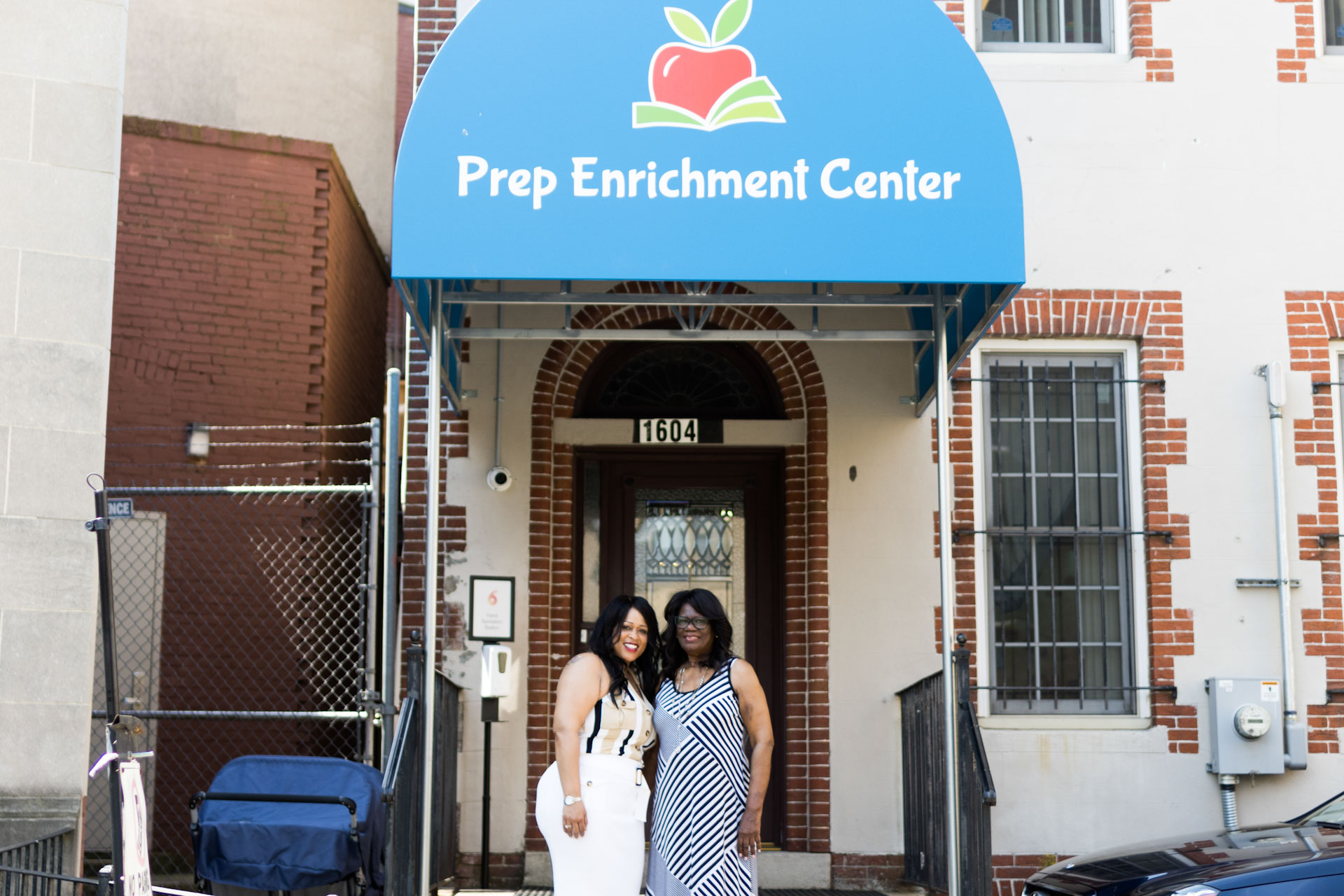
“Creating an infant center is in my blood,” says Naimah Simkins, standing in front of Prep Enrichment Center with
her mother.
“It is difficult to pay for a lease before children are even enrolled in the program,” Naimah reflected. “There are numerous financial commitments and compliance requirements before you even begin to earn revenue.” She realized she would need some kind of reliable floating capital until her business reached the break-even point.
Little Capital, Little to No Business for Entrepreneurs of Color
Naimah was not alone in her struggle to fund the growth of her business. In the U.S. business ecosystem, it is not uncommon for companies to operate in the red for years before becoming profitable. This runway is often made possible because of outside investors or business owners’ ability to secure loans from commercial banking institutions or credit unions.
But entrepreneurs of color have historically been locked out of these funding opportunities. Businesses owned by people of color face enormous structural barriers translating to less access to capital, lower revenue, and dimmer prospects for business growth. Research has shown that entrepreneurs of color are about half as likely as their white counterparts to receive full financing from a lender. Black entrepreneurs start their businesses with about $35,000 of capital, compared with white entrepreneurs, who often start with approximately $107,000.
To overcome economic barriers, small businesses owned by people of color need direct investment or in-kind equity contributions, including grants, subsidies, loans, and revenue-participation agreements. Direct investment is especially important given the impacts of the COVID-19 pandemic on small business owners of color. An additional $7.6 billion to $15.4 billion in liquidity for Black-owned small-to-medium-sized businesses in 2020/2021 could have preserved 460,000 to 815,000 jobs.
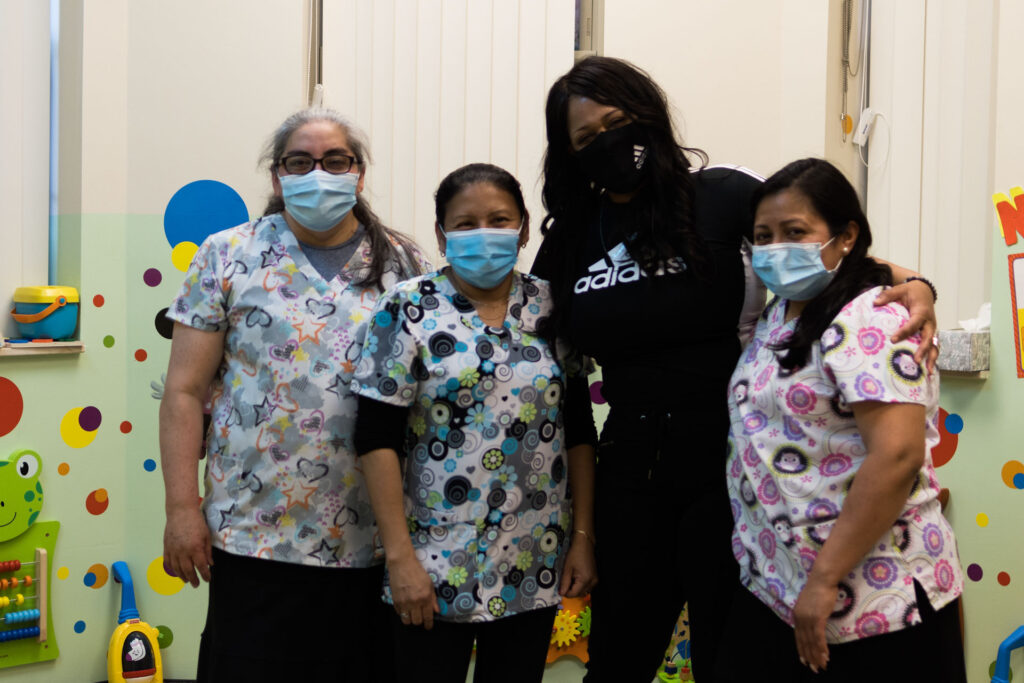
Small businesses like Naimah’s preserve and create local jobs, particularly for people of color.
Narratives perpetuated by the mainstream financial system about the “risk” involved in investing in business owners of color hold back the potential of entire communities and are a significant barrier to entrepreneurs of color starting and sustaining their businesses.
In spite of the perceived risk, the opportunity to drive economic growth by investing in entrepreneurs of color is real.
Business ownership is not just a path to wealth building for the owners and their families; small-to-medium-sized businesses were responsible for 62 percent of the net increase in private-sector jobs from 1993 to 2017. Small businesses not only create quality jobs for their community members, but increase the economic stability and mobility of their neighbors.
A Pathway to Capital and Expanded Community Assets
Across the country, the struggles that Naimah and other business owners live through have not gone unseen. In 2015, JPMorgan Chase implemented the Entrepreneurs of Color Fund (EOCF) in Detroit in partnership with local organizations. The fund forged new pathways to entrepreneurship in disinvested communities within Detroit by pairing low-cost capital with business advisory services to help entrepreneurs of color start and grow businesses, create jobs, and build wealth. The initiative has since expanded to Chicago, San Francisco, and the South Bronx.
In 2018, EOCF came to the Washington metropolitan area. The Fund was seeded in 2018 with a $3.65 million investment by JP Morgan Chase and a $1 million contribution made by the A. James & Alice B. Clark Foundation.
“Investing in minority-owned businesses is one of the most effective ways we can drive job growth and economic opportunity in the region,” said Peter Scher, Vice Chairman at JPMorgan Chase. “The Greater Washington region is thriving, but opportunity is not shared equally. With the Entrepreneurs of Color Fund, we are bringing a proven model that expands access to capital across our region and will help ensure that more people have a chance to participate in our growing economy.”
Capital Impact Partners (the fund manager), City First Enterprises (CFE), The Coalition for Nonprofit Housing and Economic Development (CNHED), the Latino Economic Development Center (LEDC), and the Washington Area Community Investment Fund (Wacif) partner to provide loans from $5,000 for new, local businesses and up to $250,000 for established and growing businesses. Funds are used for all stages of business development, from starting up to funding business growth.
“Strong local businesses are incredibly important for fostering thriving, healthy communities. EOCF is about seeding a future where all small business owners can find investment that will foster their businesses’ wealth and health,” said Melissa Stallings, director of DMV Initiatives at Capital Impact Partners. “This initiative fits into the continuum of financial, knowledge, and social capital we are deploying through Momentus Capital to transform how the financial sector better works with communities to support locally led solutions.”

Students from Prep Enrichment Center out on a stroll through Washington, D.C.’s Columbia Heights community.
To date, 2,105 entrepreneurs in the Washington metropolitan region have accessed $13.8 million in financing through EOCF.
Wacif also holds a cohort-based Ascend Capital Accelerator that takes a group of diverse entrepreneurs through a multi-week business start-up curriculum.
LEDC offers small business events and workshops all year long, ranging from how to start a business to disaster planning, resources for small businesses affected by COVID-19, emotional resilience for women entrepreneurs, and more.
“We like to start from a ‘yes’ and work with the entrepreneur to get there,” said Marla Bilonick, LEDC’s former executive director. “We really want to give our clients the chance to plug in our capital to either start or grow their businesses. In cases where they may have gotten a “no” from a bank, or credit card, or whomever, we want to do everything we can to help make sure they succeed,” she explained.
“The financing gap has prevented so many business owners of color from launching or sustaining their businesses,” Melissa explains. “After generations of systemic disinvestment in communities of color, the financial system still needs to build trust among entrepreneurs and business owners of color. Trust starts with programs like EOCF, that show good intent in supporting shared prosperity for all.”
Building Trust in Equitable Systems
A counseling psychologist and civic leader turned entrepreneur, Dr. Charlayne Hayling-Williams experienced being turned away by a mainstream financial institution at a critical moment in her business’ growth. She initially sought financial capital for her business from a national bank branch.
“The loan officer pretty much let me know that I am not the best fit for their loan product,” she explained.
Dr. Charlayne had long been inspired by her community, and she saw the continual disinvestment that it experienced in terms of vital social services. After spending much of her career in health policy at the local, federal, and congressional levels, she felt called to make a pivot. Instead of choosing to advance in the policy field or working at a think tank, in 2015, she and her husband/co-founder, Dr. Rod Williams, launched Community Wellness Ventures.
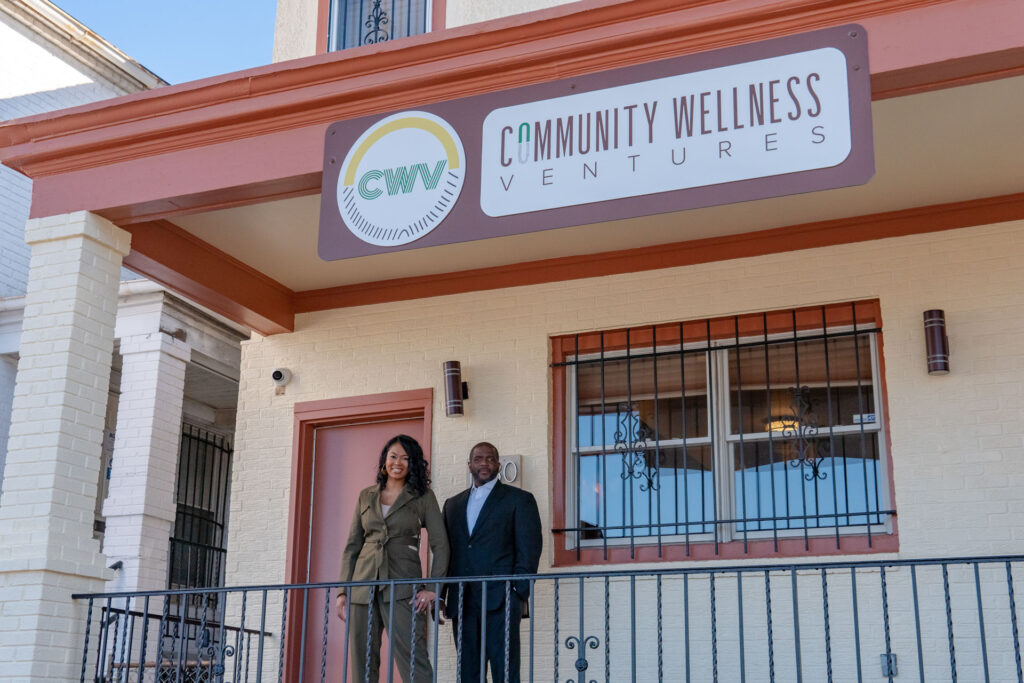
Dr. Charlayne Hayling-Williams and Dr. Rod Williams stand in front of Community Wellness Ventures, a health clinic they founded to support Southeast Washington, D.C. residents.
Dr. Charlayne sought to disrupt structural racism through mental health by co-founding Community Wellness Ventures, a fully integrated health clinic that serves as a system for change, equity in public health, and a training center for the next generation of behavioral health practitioners. She opened Community Wellness Ventures (CWV) with the vision of it being a one-stop shop for addressing the social and health challenges faced by residents east of the river.
“I understood firsthand the correlation between institutional systems’ impact on behavioral trajectories and generational outcomes, particularly for vulnerable populations,” Dr. Charlayne explained. “This disparity most adversely impacts African Americans,” she continued.
CWV provides a variety of services, from behavioral and physical health to connections to childcare, education, and workforce housing. Located in the District’s Anacostia neighborhood, Community Wellness Ventures has quickly become a trusted resource in a community that struggles with food insecurity, unemployment, and historical disinvestment.
“We knew that, particularly east of the river, it was important to model the change that we needed to see and we couldn’t do that without developing Community Wellness Ventures,” Dr. Charlayne said.
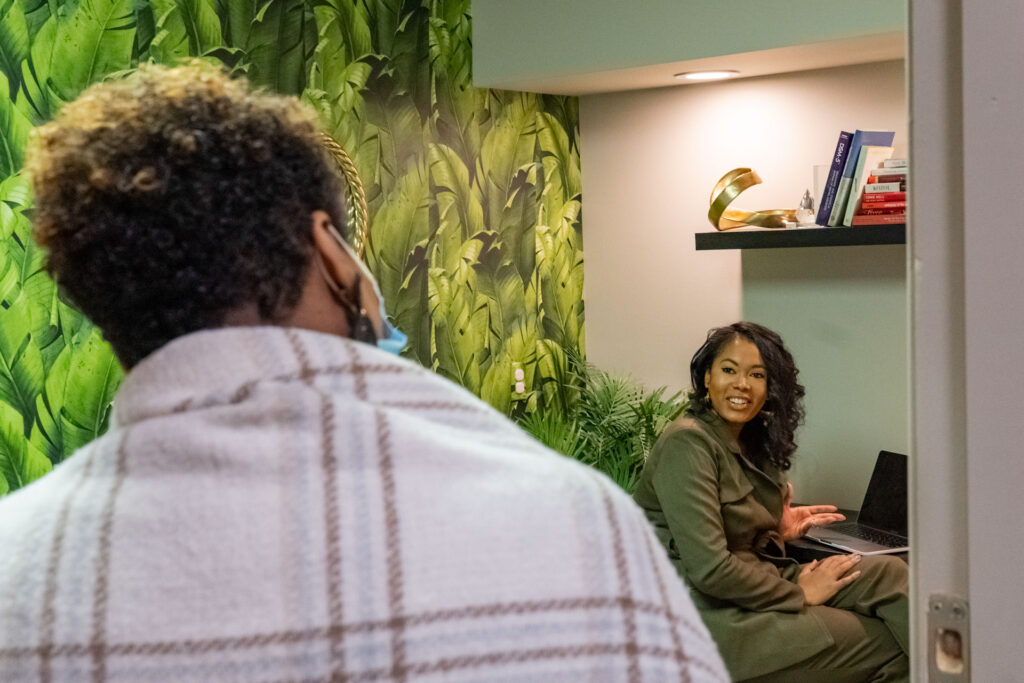
“We knew that, particularly east of the river, it was important to model the change that we needed to see and we couldn’t do that without developing Community Wellness Ventures,” Dr. Charlayne said.
Similar to Naimah, Dr. Charlayne had already exhausted a great deal of financial capital on starting up the wellness clinic, including hiring staff; purchasing technology; securing licenses, permits, and certificates; and paying for a lease for the facility. While community members were taking advantage of the CWV services, there was also a delay in payment from Medicaid, a challenge that many health care providers face.
She sought funding to ensure the positive cash flow for business operations until CWV was able to break even.
Determined to serve as a resource in the community, Dr. Charlayne visited that mainstream financial lender in search of a business loan. Although her business showed growth, the loan officer explained that he would still be unable to qualify her for the loan because she was not yet able to show a profitable financial track record of two or more years. However, the loan officer knew of EOCF, and recommended Dr. Charlayne look into it.
Fostering Space for Entrepreneurs of Color to Thrive
When Ian Lawrence, former director of Lending at Wacif, looked beyond Dr. Charlayne’s financial track record, he found that her business model of holistic health care services met a specific need among communities east of the river. Additionally, it was clear to him that CWV was on the path to profitability. As demonstrated by CWV’s long waitlist of clients eager to engage in their services, they had a promising financial trajectory. Most importantly, he recognized the demand and social benefit of the holistic services that CWV offers.
Through EOCF financing and business advising, CWV had the support it needed to expand services for the local community. “We felt confident in Dr. Hayling-Williams’ expertise and her team’s ability to execute on their plan,” Lawrence reflected.
Dr. Charlayne has designed a safe space for people in Southeast D.C. to work on all facets of their health and wellness. Looking comprehensively at the community assets and aspirations drives CWV’s services. “People require solutions that are as holistic as they are,” she explained. “CWV must be equipped to handle the multiple threads of systemic oppression that threaten Black communities.”
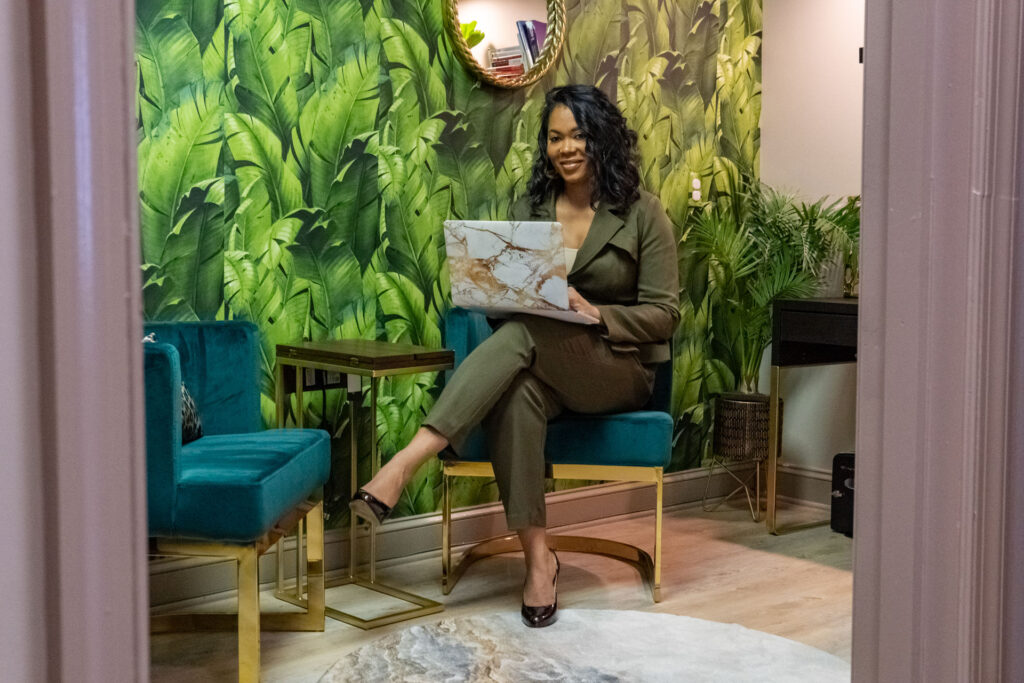
“We felt confident in Dr. Hayling-Williams’ expertise and her team’s ability to execute on their plan,”
Ian Lawrence said.
The EOCF loan allowed Dr. Charlayne to staff CWV and onboard personnel to meet the growing needs of its community. CWV actively formed multiple public-private partnerships with community-based organizations that serve the local community, bringing behavioral clinicians directly to clients, including by way of the CWV mobile clinic.
“They [community members] really enjoy services at their fingertips,” she explains. “I couldn’t see 25 Black men in a week, who were previously incarcerated with all of the things they have on their plates, on top of being required to complete programs, and be fathers, and be partners, with all these things – there is no time in their day to also leave and come to a clinic.”
Naimah has made significant strides with Prep Enrichment Center since 2018 as a result of the loans and business advising she received through EOCF. “My eyes are above water. I can finally breathe,” she said.
Prep Enrichment Center is in high demand. The center now boasts a growing waitlist stemming from word-of-mouth referrals from currently enrolled families. She has had so much volume that she has been able to open a second location.
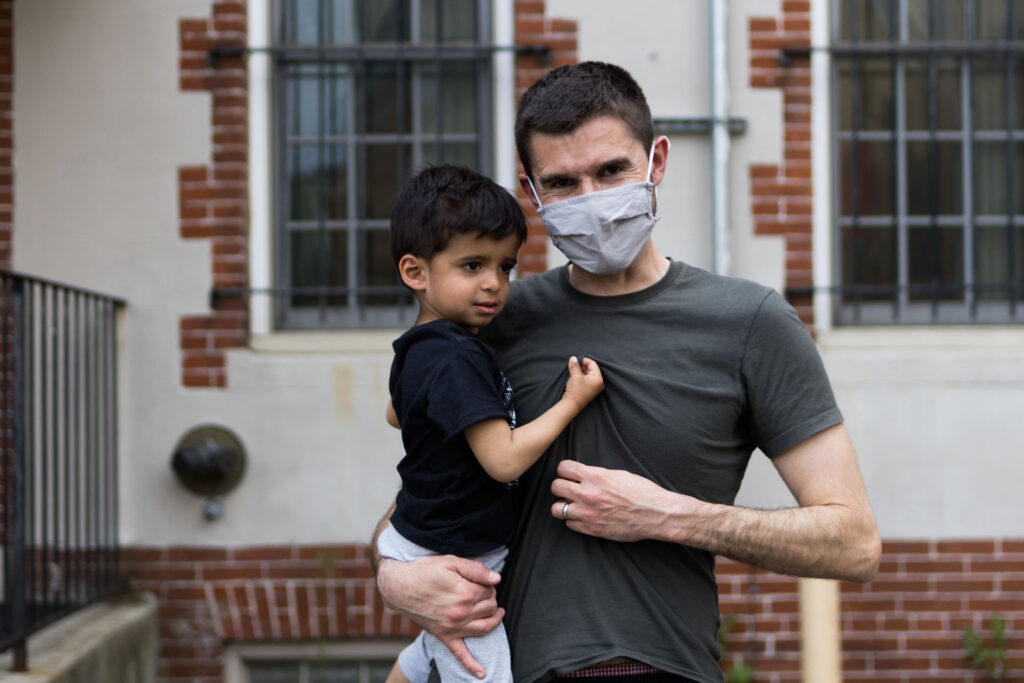
Prep Enrichment Center is in high demand. The center now boasts a growing waitlist stemming from word-of-mouth referrals from currently enrolled families. Naimah has had so much volume that she has been able to open a
second location.
“Many parents come in three months pregnant, hoping to get a spot on our waitlist early,” Naimah explains.
Naimah takes pride in ensuring her beloved staff are well supported. “I take excellent care of my staff, and all my staff are people of color.”
If it weren’t for the EOCF loan, Naimah admits, “I don’t know where I would have gotten the money from. The financing came through at a time where I was almost forced to make the difficult decision between paying my staff or rent. Luckily, I didn’t have to.”
LEARN MORE ABOUT OUR WORK
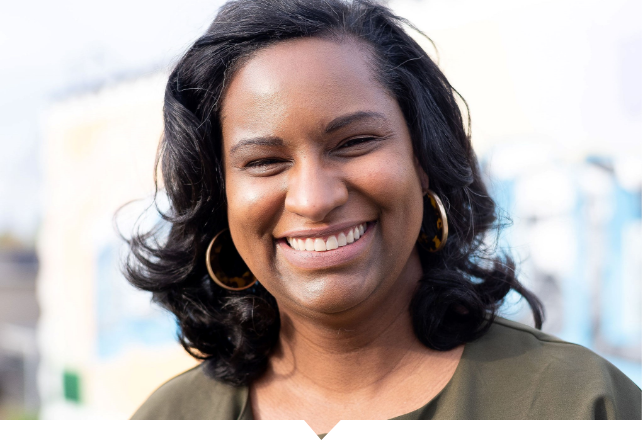
Supporting Diverse Developers and Affordable Housing
Through our HEAF program, we are providing training and grant capital to support real estate developers of color to build wealth and develop affordable housing in the Washington, D.C. Metro area.
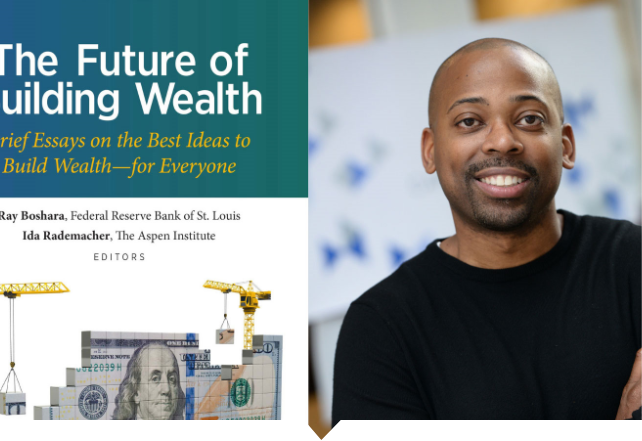
The Future of Building Wealth: Ellis Carr Essay on Building Wealth—for Everyone
Our President and CEO Ellis Carr joined other leaders to discuss promising and best practices for addressing the widening wealth gaps in our society and building power for underestimated communities.
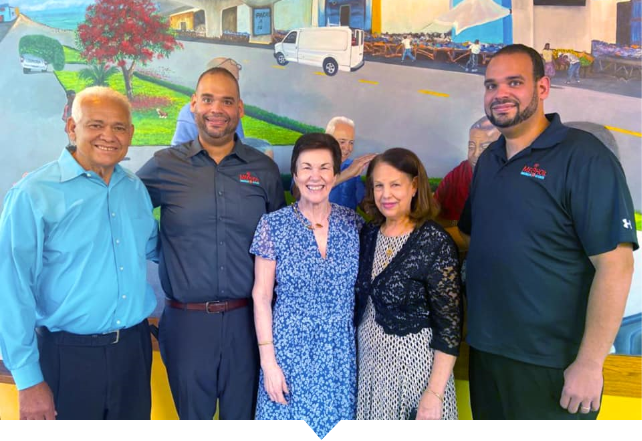
Financing, Technical Assistance, and Grants to Help DC Food Businesses Expand Economic Prosperity
Nourish DC provides flexible loans, technical assistance, and catalytic grants to emerging and existing food businesses in the District of Columbia, with a preference for businesses located in or owned by residents of
underserved neighborhoods.

